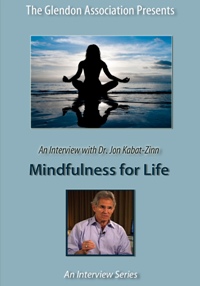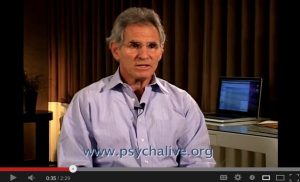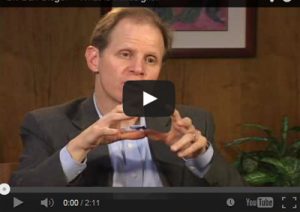What is Mindfulness?
Watch and read our exclusive interview with Jon Kabat-Zinn
Mindfulness is actually a way of connecting with your life and it’s something that doesn’t involve a lot of energy. It involves a kind of cultivating attention in a particular way. So the way I define it is it’s paying attention on purpose in the present moment, non-judgmentally. And then I like to add sometimes, “as if your life depended on it.” Because it does. Because attention is the faculty that allows us to navigate our lives in one way or another and to actually know what’s happening or know that we don’t know what’s happening and find ways to be in a wiser relationship to things that are going on in our lives than being at the mercy, say, of our own emotional reactions and crazy thoughts and fears and so forth. So it’s paying attention, on purpose, in the present moment non-judgmentally as if your life depended on it.
So paying attention to what, you might ask. Well, it doesn’t actually matter. It’s the attending itself that’s important, more important than what it is that you are paying attention to. But that said, if you start to pay attention to how much attention we pay to anything, you begin to notice that the mind is all over the place. It never sits still. This idea and that opinion and this reaction, and we spend a huge amount of time planning and worrying about the future and a huge amount of time reminiscing about the past and who did what to whom or why it worked out this way or why it didn’t work out this way. And the present moment, which is the only time that we’re ever alive in, the only time that we could learn anything, express any kind of love or emotion, the only time we could be in our own body, the only time we can see or hear or smell or taste or touch or communicate, is now. And yet the present moment gets completely squeezed out by all of our preoccupation with the future and the past. When we start to pay attention to our own mind and our own body, it’s like reclaiming your life.
Mindfulness is not a techniques, although there are many, many different ways to cultivate mindfulness. It’s actually a way of being, being embodied, being in some sense, in equilibrium with the comings and goings of the outer world. And even the comings and goings and the ups and downs of having a body, which, of course, has its wonders and is also seriously problematic when we’re dealing with health problems of one kind or another or things that can happen to the body. And as long as we have this capacity for awareness, why not develop it?
Much of the time, if you think about our educational system and how we grow up, we are trained more and more and more to get into thinking. And thinking is wonderful stuff, very powerful, some of the, you know, greatest achievements of humanity come out of thought. And out of imagination and out of creativity. But the other piece of it that’s equally as powerful as the capacity for thought is the capacity for awareness. But we get no training in awareness and attention – huge amount of training in thought. So a lot of the time when we get into bed at the end of a long day, we can’t deal with our thoughts and can’t sleep. They just kind of perseverate over and over and over again, the same thoughts. We want to shut them out. The more you try to shut them out, the more they come in and pretty soon, you don’t get to sleep or you wind up with, you know, chronic anxiety or some kind of condition or other.
Depressive rumination can spiral you into depression. A little bit of sadness and then – that triggers that kind of perseverating constantly, “What’s wrong with me? Why don’t people like me? Why didn’t she look at me?” Whatever it is. These are all thoughts: I’m no good. I’m too old. I – you know – my life is all downhill from here. All of those things, they’re only thoughts. But most of the time we think of them as the truth. So what mindfulness does, in a way, is it embraces the actuality of the mind, the heart, the body and our relationality with the outer world and gives us new degrees of freedom to navigate the ups and the downs and the ins and outs of our relationships, with life, with other people, with our own aspirations and our own fears and also – and most fundamentally – with our own body.
Now most of us don’t want to go anywhere near our own body except under very specialized circumstances and particular times. It seems like, “Wow! It’s wonderful to have these bodily experiences!” But a lot of the time we’re just pretty much up here. Thinking, thinking, thinking, thinking …. And really believing so many of these thoughts as the truth that we wind up in a very narrow band of what’s actually possible for us in terms of our human experience.
Order the Full DVD Interview:
 Mindfulness for Life: An Interview with Jon Kabat-Zinn
Mindfulness for Life: An Interview with Jon Kabat-Zinn
In this DVD, Dr. Jon Kabat-Zinn defines mindfulness as a way of “connecting to your life.” He discusses the “hard work” of living in the present moment, the personal and psychological impacts of developing a practice of mindfulness, and the benefits of utilizing mindfulness in therapy. He also touches upon mindfulness in parenting. Drawing upon his years of experience and research in the field of mindfulness, Dr. Kabat-Zinn offers an inspiring and instructive approach for mental health professionals and curious individuals alike.
Tags: depression, jon kabat-zinn, mindful living, mindfulness, stress










Leave a Reply